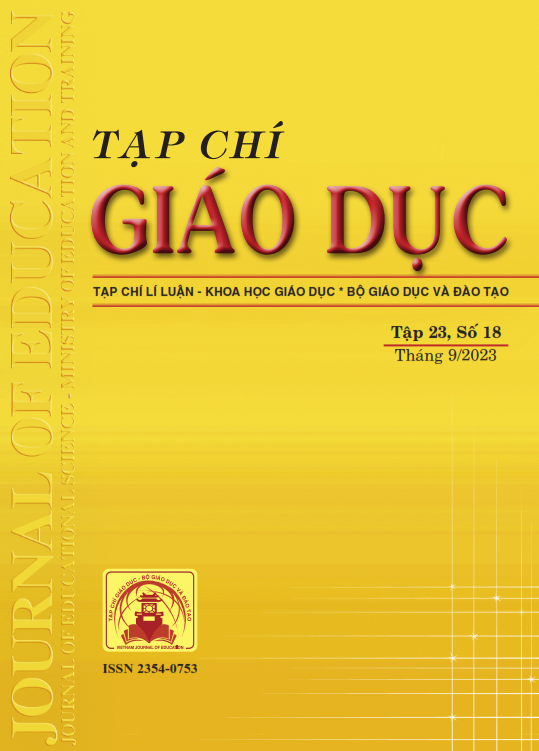Hiệu quả của các ứng dụng di động trong việc học tiếng Nhật: đánh giá của sinh viên các trường cao đẳng, đại học trên địa bàn thành phố Hà Nội
Tóm tắt
Currently, learning using mobile devices (apps) is becoming a trend thanks to its convenience and cost efficiency. Accordingly, more and more people are using mobile devices to support the learning process in general and foreign language learning in particular. This article investigates the current situation of using mobile applications in learning Japanese, factors affecting the effectiveness of using applications in learning Japanese, and development prospects of paid mobile applications to learn Japanese in Hanoi City. The research results show that 4 factors including interactivity, convenience, attractiveness and usefulness all affect the effectiveness of using Japanese learning mobile applications for university students users in Hanoi city. This result is one of the basis for developers to identify the strengths and weaknesses in their products, in order to improve the application's efficiency as well as maintain customer satisfaction and the sustainable development of the product.
Tài liệu tham khảo
Bolgün, M. A., & McCaw, T. (2019). Toward a neuroscience-informed evaluation of language technology. Computer Assisted Language Learning, 32(3), 294-321. https://doi.org/10.1080/09588221.2018.1516675
Davis, F. D., Bagozzi, R. P., & Warshaw, P. R. (1989). User acceptance of computer technology: A comparison of two theoretical models. Management Science, 35, 982-1003.
Dragonflame, C. S., Olsen, A. A., & Tommerdahl, J. M. (2021). Efficacy of Mobile Apps in Teaching Foreign Languages: A Systematic Review. ORTESOL Journal, 38, 33-35.
K Quyên (2023). Thúc đẩy hợp tác thương mại, đầu tư Việt Nam - Nhật Bản. Báo điện tử Đảng Cộng sản Việt Nam. https://dangcongsan.vn/kinh-te/thuc-day-hop-tac-thuong-mai-dau-tu-viet-nam-nhat-ban-631725.html
Lai, P. C. (2017). The literature review of technology adoption models and theories for the novelty technology. Journal of Information Systems and Technology Management, 14, 21-38.
Lee, Y., Hsieh, Y. J., & Hsu, C. (2011). Adding innovation diffusion theory to the technology acceptance model: Supporting employees’ intentions to use e-learning systems. Educational Technology & Society, 14(4), 124-137. http://www.ifets.info/journals/14_4/12.pdf
Rogers, E. M. (1983). Diffusion of Innovations. New York: The Free Press.
Sung, Y. T., Chang, K. E. & Yang, J. M. (2015). How effective are mobile devices for language learning? A meta-analysis. Educational Research Review, 16(1), 68-84. https://www.learntechlib.org/p/197383/
Venkatesh, V. & Davis, F. D. (2000). A Theoretical Extension of the Technology Acceptance Model: Four Longitudinal Field Studies. Management Science, 2, 186-204. https://www.jstor.org/stable/2634758
Venkatesh, V., Morris, M. G., Davis, F. D., & Davis, G. B. (2003). User Acceptance of Information Technology: Toward a Unified View. MIS Quarterly, 27, 425-478. https://doi.org/10.2307/30036540
Yu, Z. (2019). A systematic review on mobile technology-assisted English learning. International Journal of e-Collaboration, 15(4), 71-88. https://doi.org/10.4018/IJeC.2019100105
Tải xuống
Đã Xuất bản
Cách trích dẫn
Số
Chuyên mục
Giấy phép

Tác phẩm này được cấp phép theo Ghi nhận tác giả của Creative Commons Giấy phép quốc tế 4.0 .












